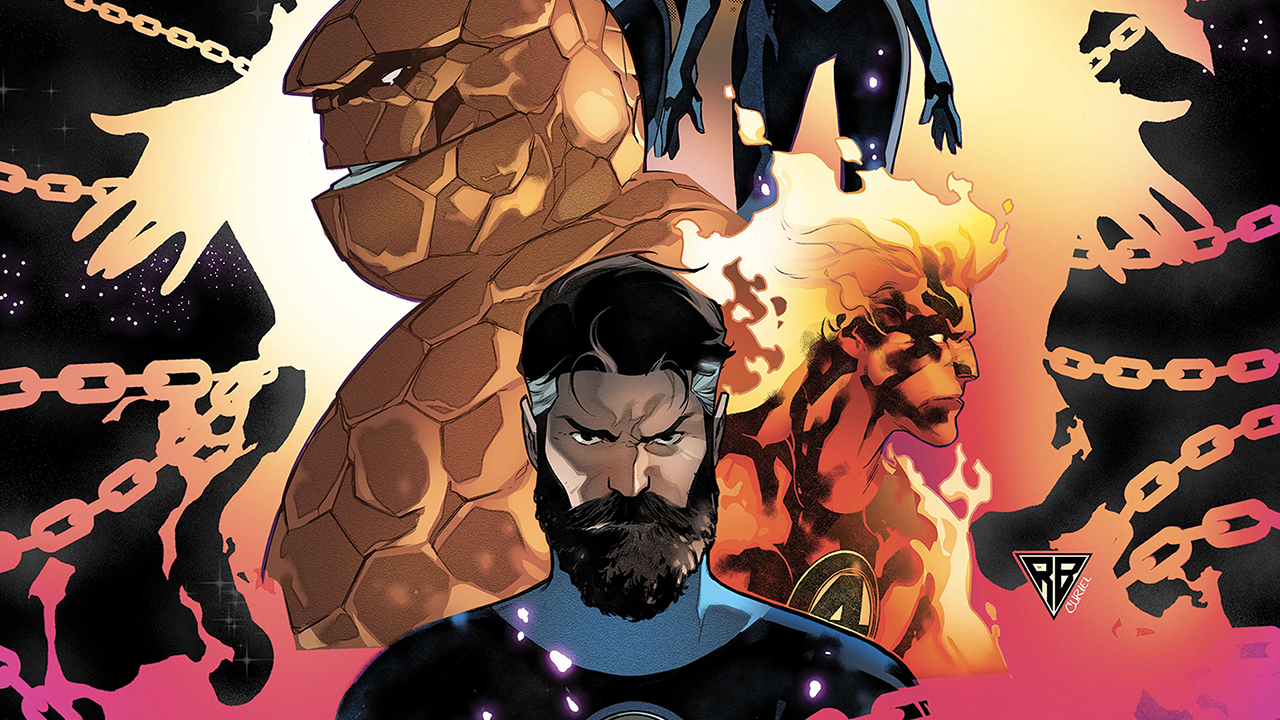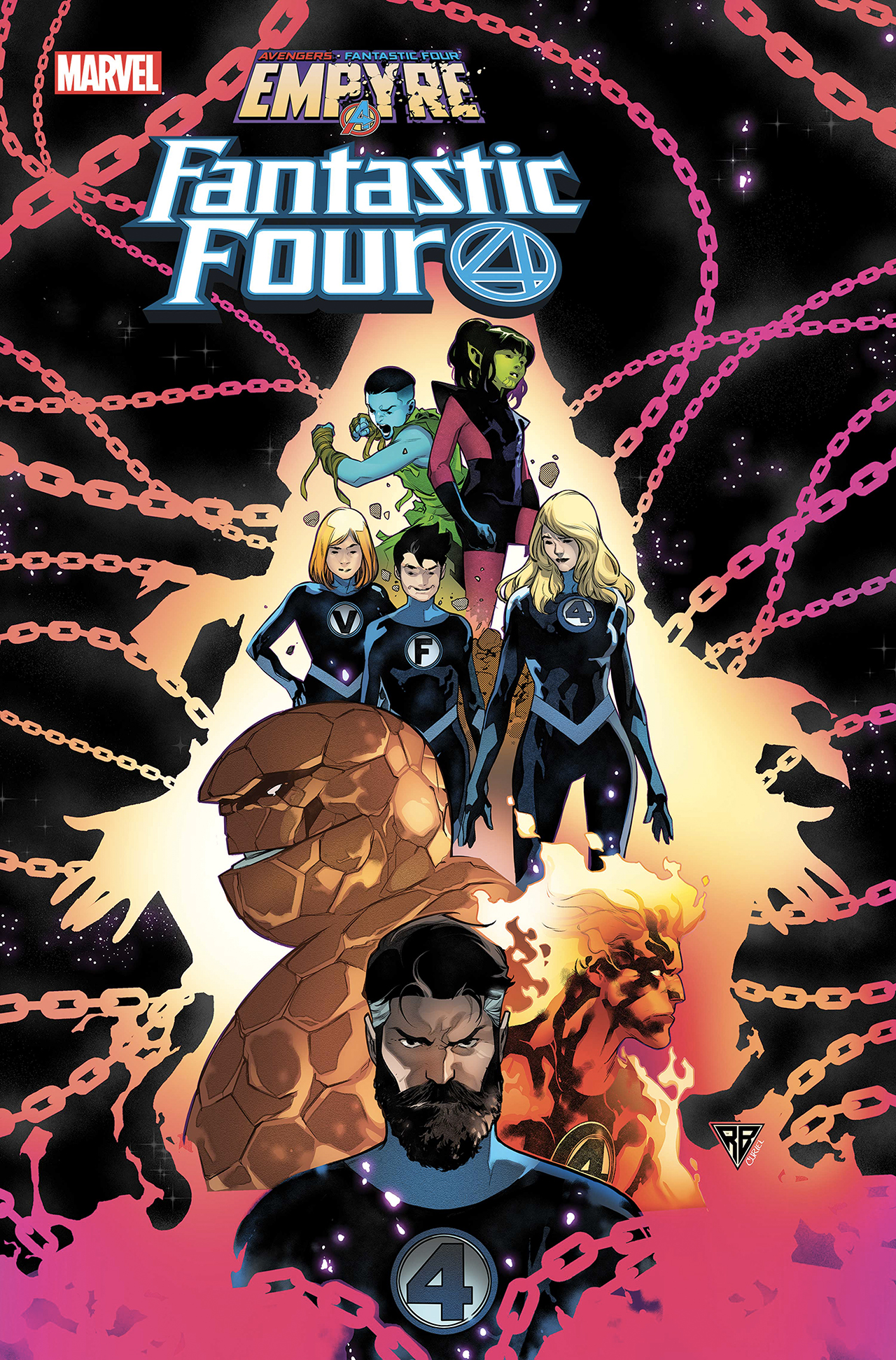Marvel promises 'two major turning points' and beginning of Marvel Space Age in Empyre epilogues
Empyre: Aftermath Avengers and Empyre: Fallout Fantastic Four

It wouldn't be a Marvel Comics event without tie-in issues, preludes, and epilogues, and this summer's Empyre, that finally launches post-Diamond suspension July 15, will be no different.
In September Marvel will publish two postgame epilogue one-shots, Empyre: Aftermath Avengers and Empyre: Fallout Fantastic Four, which answer the question "Who will be left standing the fallout of Empyre?" and both have the added bonus of being alliterative.

Dan Slott writes Fallout Fantastic Four #1, which is drawn by Sean Izaakse with a cover by R.B. Silva, and the publisher is promising not one, but "two major turning points for the entire Marvel Universe as the fate of all future Kree/Skrull Wars is placed in the hands of Reed Richards and his family, the Fantastic Four!"
All readers have to do is pay extra shipping and handling (that's an infomercial joke, folks).
"The fate of all future Kree/Skrull Wars is placed in the hands of... Reed Richards and his family, the Fantastic Four," continues Marvel's description. "Also in this issue... The Profiteer returns, but is she here for revenge... or justice? And a special appearance by the most ominous cosmic character of them all, the Unseen!"

Empyre: Aftermath Avengers #1 is written by Al Ewing and drawn by Valerio Schiti with a cover by Jim Cheung, and promises that Empyre "begins a new age for the Marvel Universe! ... the Marvel Space Age."
"In the aftermath of the cosmic conflict, the forces gather one last time... but why? And at whose bidding?" reads Marvel's description. "New bonds will be forged, new families will be founded, and there's a new role waiting for Earth... but new destinies bring new dangers - and new enemies!"
Get the best comic news, insights, opinions, analysis and more!
Newsarama is a comic book website covering news, interviews, features, deep dives, reviews and more. Now part of GamesRadar, the website was first established in 1995 by Michael Doran.


